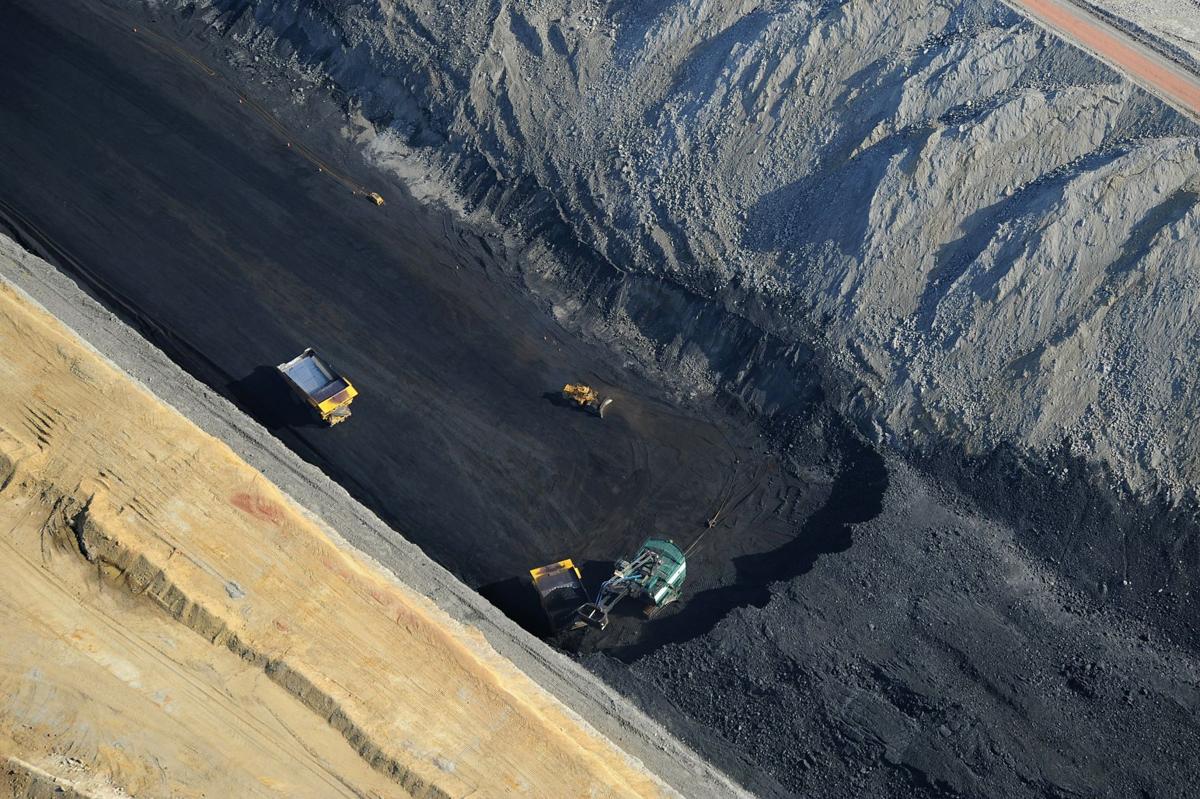Coal Economy Troubles Hitting Montana's Tax Rolls

By Tom Lutey
November 7, 2020 - Coal economy struggles are showing up on Montana tax rolls with millions of dollars past due to state and local governments.
Mining companies Decker Coal and the Navajo Transitional Energy Co. owe more than $9 million gross proceeds taxes, which are collected on the amount of coal actually mined and paid to counties. The two companies own southwest Montana mines a short walk from each other in Big Horn County. Coal severance taxes paid to the state are also about $9 million past due.
Unpaid gross proceeds taxes on NTEC’s Spring Creek mine total $7.3 million, according to Big Horn County tax records. Decker Mine is past due on $1.64 million. To make up the difference, county residents are paying more in property taxes by way of mill increases.
For decades, coal mine taxes on both property and production have paid the bills in sparsely populated counties in the Powder River Basin. Money from the mines kept everyone else’s property taxes low. But that’s changing, said Commissioner George Real Bird, of Big Horn County.
For the first time ever, Big Horn County put ambulance and public safety funding to voters on Election Day. Voters seemed to approve of billing themselves more for those services, but those are also services that in coal’s better days would have been paid for out of the general fund without raising taxes.
“Because of coal, we were definitely in a good spot, because the general fund could pay for everything. Like last year, $200,000 went to the county hospital, $60,000 went to the museum, $150,000 went to the library. Because of coal, the county could give money to all these different entities,” Real Bird said. “As coal has went away, we’ve had to figure things out.”
Earlier, the county had to end solid waste service because it couldn’t afford it.
Decker Coal received a request for comment from Lee Montana Newspapers, but chose not to reply. NTEC said that its past due taxes stem from the previous owner of Spring Creek Mine. Cloud Peak Energy had a full year of unpaid gross proceeds taxes when NTEC bought the mine at a bankruptcy sale last fall. NTEC’s senior tax counsel, Vice President Matthew Adams, said the company intends to pay the taxes, which became its responsibility when it bought Cloud Peaks assets. However, what’s owed in Montana is just a fraction of the $93 million in back-tax debt needing to be paid.

Aerial view of the Cloud Peak Energy Spring Creek Mine near Decker
Photo: Larry Meyer, Billings Gazette
“Cloud Peak went into bankruptcy in May of 2019 and through the bankruptcy process, there were a number of taxes and royalties that Cloud Peak chose not to pay for, didn’t have the cash to pay,” Adams said. “As part of the transaction that closed in October of last year, NTEC picked up and assumed just over $93 million of historic Cloud Peak liabilities. Included in that amount, Cloud Peak owed Big Horn County just less than $13 million, $12.7 million, and that’s just in gross proceeds, and also $1.3 million in property tax.”
Adams’ calculation of what’s owed to Big Horn County is larger than that county estimate because it includes two upcoming tax payments, the first at the end of November, the second at the end of May.
There’s another bucket of the back taxes owed by Decker Coal and NTEC. Montana’s coal severance tax, collected by the state on all coal mines producing at least 50,000 tons of coal a year. That money then helps pay for a nearly a dozen government services, and severance fund, along with several government services, like basic library services, conservation districts, cultural and agriculture programs.
Like the gross proceeds tax, the amount collected by the severance tax is based on production. When coal demand is down, so is severance tax revenue. For the last state fiscal year ending June 30, coal severance taxes collected were $49 million, down $11 million from the year before and also the lowest amount collected for the past five years. The severance tax is a significant contributor to state funding, but by no means the largest. State cigarettes taxes, for example, generated $63.4 million during the same period.
Demand for coal is decreasing as cheaper natural gas takes coal's place as an energy leader and also because states and countries worried about climate change are imposing phase-out laws on coal power.
There are four coal mining companies that pay coal severance taxes in Montana: NTEC, Decker Coal, Westmoreland Mining LLC and Signal Peak. A look at current severance tax records shows only NTEC and Decker Coal are past due.
NTEC owed $6.18 million in coal severance taxes due for the period Cloud Peak ran the mine. Decker Coal owes $3.5 million in coal severance taxes from the past three quarters.
Both NTEC and Decker faced challenges this year as the demand for coal declined at power plants and factories. Decker furloughed 73 workers this fall through January. It was the second time this year that Decker sent miners home with no pay for an extended period. In early May, Decker furloughed 98 workers, but the miners returned at the end of the month.
Spring Creek is Montana’s largest coal mine. In April, NTEC announced layoffs for 73 workers because of a slowdown in coal demand. It did the same to 57 workers at its Antelope Mine in Wyoming. In July, the company hired back the miners who were interested in returning.
There are other coal economy tax losses on the horizon. In March, the Lewis and Clark Power Plant near Sidney will shut down. Lewis and Clark is owned by Montana Dakota Utilities.

